All Stories
-
 Neuroscience
NeuroscienceLeft brain stands guard while sleeping away from home
Part of the left hemisphere stands sentry while the rest of the brain and body snooze.
-
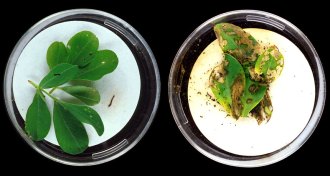 Agriculture
AgricultureBacterium still a major source of crop pesticide
Bacillus thuringiensis bacteria have provided pest-fighting toxins for over 50 years.
-
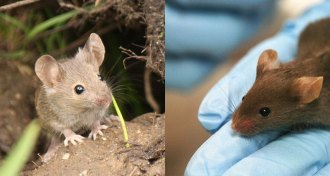 Health & Medicine
Health & Medicine‘Dirty’ mice better than lab-raised mice for studying human disease
Dirtier mice may better mimic human immune reactions.
-
 Space
SpaceTrying to find ET and our place in the universe
Editor in Chief discusses the search for life beyond Earth.
By Eva Emerson -
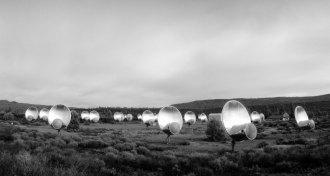 Science & Society
Science & SocietyHumans have pondered aliens since medieval times
People have been fascinated with extraterrestrials for centuries. If only aliens would get in touch.
-
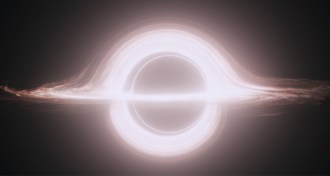 Cosmology
CosmologyHow to make gravitational waves ‘sing’
A rapidly spinning black hole would make a unique pattern of gravitational waves when it sucks in a smaller companion.
-
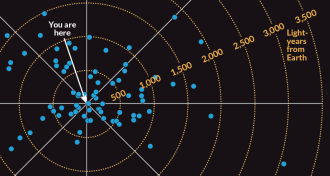 Astronomy
AstronomyTo find ET, look at who’s (maybe) looking at us
To listen for aliens, two astronomers suggest that we focus on stars whose inhabitants can see Earth periodically cross in front of our sun.
-
 Animals
AnimalsCave-dwelling salamander comes pigmented and pale
Something’s funny in the family tree of pale, slinky cave salamanders.
By Susan Milius -
 Anthropology
AnthropologyBelize cave was Maya child sacrifice site
Bones in Central American cave suggest many Maya sacrificial victims were children.
By Bruce Bower -
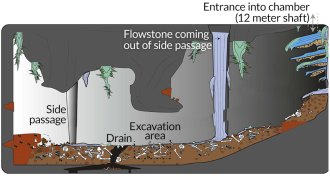 Humans
HumansPieces of Homo naledi story continue to puzzle
Researchers defend Homo naledi as a new hominid species and debate how it reached an underground cave.
By Bruce Bower -
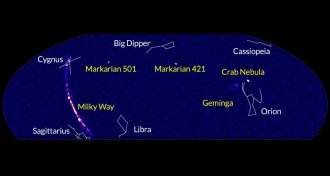 Cosmology
CosmologyNew sky map charts previously unknown gamma-ray sources
A new map of the sky from the High-Altitude Water Cherenkov Observatory charts the cosmic origins of high-energy photons.
-
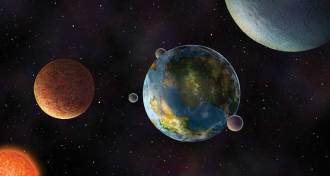 Planetary Science
Planetary ScienceHow alien can a planet be and still support life?
Geoscientists imagine the unearthly mechanisms that could keep alien planets habitable.